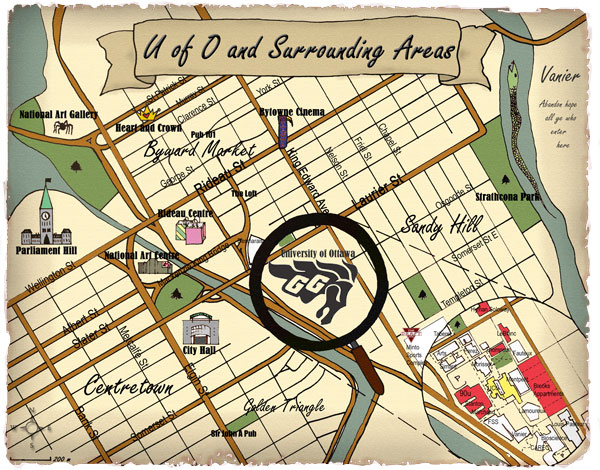American students reflect on the electoral process and Joe Biden’s victory
For more than four days the world patiently watched and waited for the 2020 U.S. presidential election results. Due to a high volume of mail-in ballots, it took a long time to project a winner and several states are still in the process of counting all ballots cast.
“Those of us who do not live in America are profoundly affected by American politics,” said Emily Wills, an associate professor in the political studies department at the U of O.
The presidential election in the U.S. is not simply a domestic issue, it profoundly affects the rest of the world; including Canada’s relationship with the country.
There have been a high volume of mail-in ballots during this election due to the COVID-19 pandemic. In addition to the already large number of people opting to use this method, postal services in the U.S. were slowed down due to the virus.
As of Nov. 7, Nevada, Georgia, Alaska and North Carolina are still awaiting the results of their ballots according to CNN. Several of these states, including Georgia and North Carolina have over 10 electoral college votes, making them important in the race even if on Saturday morning Joe Biden was projected the next president of the United States by multiple networks awarding him the 20 electoral votes from the Commonwealth of Pennsylvania.
President Donald Trump is currently sitting at 214 electoral votes, while Biden now sits at 273 electoral votes according to CNN (some outlets have called Arizona and Nevada in his favour putting him at 290 electoral votes). As of Saturday morning, Biden is projected to have the 270 needed electoral votes to win the presidency.
Alana Malanga, a second-year U of O theatre student from New Jersey chose to opt-out of voting in this year’s election due to her dislike of both presidential candidates and her living in Canada.
“I thought that being in another country and there being two candidates that I’m not a very strong believer of, why vote this year?” said Malanga.
“Either way, me voting or not I knew it would be a very close race,” she said.
Elliot Verburg, a second-year U of O communications and political science student from Washington, D.C, voted for Biden in this year’s election and is hoping for a Biden presidency.
Originally a supporter of Vermont Senator Bernie Sanders in the Democratic Party primaries, Verburg was not the biggest fan of either candidate but opted to vote for Biden in order to avoid another four years of Trump; a common trend observed not only this election cycle but in 2016 as well.
Wills and Verburg now both expect the Biden presidency to be the complete opposite of what has been the norm in the U.S. under Trump for the last four years.
“A Biden presidency [will] be a return to the status quo,” said Wills.
Verburg is confident that Biden, despite “all his flaws” is someone who will listen to those closest to him and make decisions based on the knowledge that they bring.
“I can never see Joe Biden telling Dr. Anthony Fauci that he’s wrong about COVID-19.”





